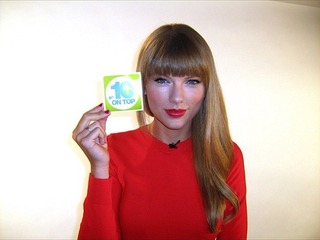
Twitter is preparing to launch filters on its camera app in the next few months, the New York Times reported Friday, a move which would put Twitter’s camera app directly in competition with Instagram, the app that popularized the idea of putting filters on mobile pictures.
VatorNews reached to Twitter to get comment from it regarding the rumor, but we have not heard back yet.
If the rumor of Twitter’s upcoming plans does prove to be true, however, it will not be the first time that Instagram has had another social network has copied its signature photo filters: ironically, it was Facebook, the company which purchased Instagram for $1 billion cash in April, that also tried to rip it off.
In May, Facebook debuted its stand-alone Camera app for iOS, with 14 different filters such as cool, light, and copper. The app also lets users tag friends and locations, add a description, and post quickly within the app.
So did the attempt to copy Instagram’s filter idea turn the Camera app into a success?
While it was not a failure, the Camera app still lags behind Instagram. According to AppData, on the top free iOS apps leaderboard, Instagram comes in at number 8, while Facebook Camera is all the way down at number 27.
That the Camera app could not overtake Instagram reinfornces something I truly believe: that those that try to copy Instagram’s filters as a way to try to compete with it miss the point of why it is so successful.
Perhaps the idea of making a picture looking like was taken in the 70s was novel when it was first introduced, but the others who tried to copy it have watered the idea down by now. And yet Instagram still remains extremely successful. It has 13.9 million daily active users on Facebook, just behind Microsoft Live, and 36.8 monthly active users, putting in second place on Facebook behind FarmVille2, AppData says.
While there is obviously no way of knowing exactly why Instagram has remained so popular, I tend to think that it is the same reason that Facebook has remained so popular, and is only growing in users: it was there first, and so people trust it.
Instagram was the first app I can remember that allowed me to upload my pictures to my social networks in seconds. I didn’t have to log into anything, or fiddle around with any buttons. It was simple and easy. It was also popular, and a lot of my friends were already on it, so when it came time to choose which app I wanted to download, it was an easy choice to make. And now that is why I stick with it. I know it works and all my friends use it.
Twitter and Facebook can add all the filters and other features to their camera apps that they want; I doubt it will do anything to move the needle away from Instagram.
Instagram’s success
Instagram is a major success, any way it is measured, so its not all that surprising that others would try to steal the formula.
The app was an instant hit, reaching one million users in only two months after launching in October 2010. After it launched its Android app in April, it saw its user numbers jump by 10 million in 10 days, and it cracked the top 10 fastest growing sites in the United States for March, jumping 19% in a single month.
In April, Instagram’s unique visitors shot up 78% to 14.5 million, from 8.2 million unique visitors in March, making it the fastest-growing Web property. That same month, Facebook purchased Instagram, and it has taken off like a rocketship since.
In a conference call after Facebook’s most recent earnings report, Facebook CEO Mark Zuckerberg called Instagram “a platform success story.”
Instagram had 27 million registered users when it was purchased, he said, and it now has 100 million. Zuckerberg said that more mobile time spent on instagram than on Twitter.
A study from business data analytics company Simply Measured earlier this week found that 54% of the top 100 brands are now on Instagram, including MTV, Satarbucks, Burberry, Nike, Gucci, Tiffany and Co, Audi and GE.
(Image source: http://www.thehungryandfoolish.com)





















